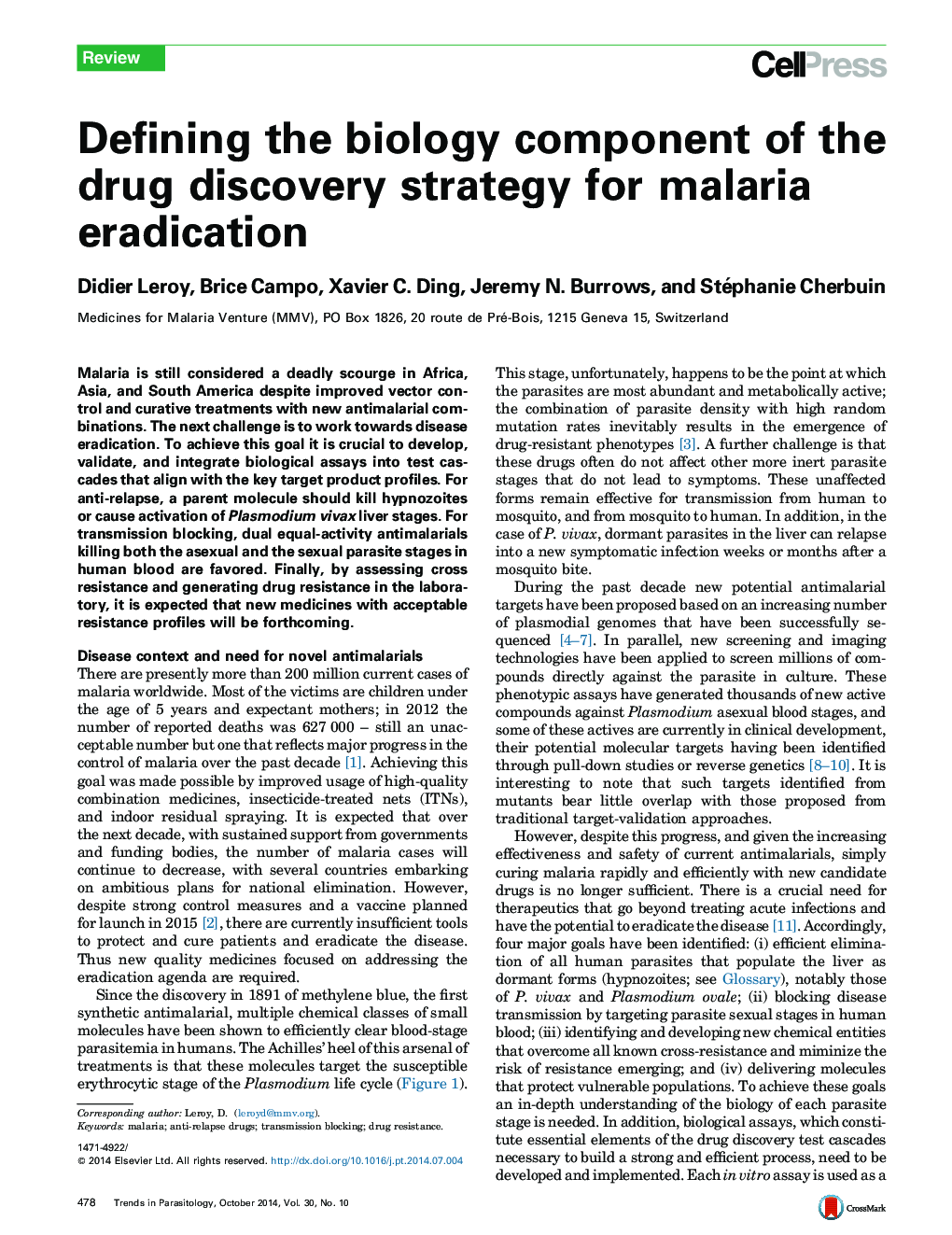| Article ID | Journal | Published Year | Pages | File Type |
|---|---|---|---|---|
| 3423107 | Trends in Parasitology | 2014 | 13 Pages |
•The current biological strategy supporting the discovery of new antimalarials at the Medicines for Malaria Venture (MMV) is described.•Biological assays underpinning the discovery of drugs that will lead to malaria eradication are reviewed.•Major limitations in the identification of new anti-relapse drugs are presented.•The way towards new molecules that will block malaria transmission is described.•A three-level risk scale for the development of resistance to antimalarials is proposed.
Malaria is still considered a deadly scourge in Africa, Asia, and South America despite improved vector control and curative treatments with new antimalarial combinations. The next challenge is to work towards disease eradication. To achieve this goal it is crucial to develop, validate, and integrate biological assays into test cascades that align with the key target product profiles. For anti-relapse, a parent molecule should kill hypnozoites or cause activation of Plasmodium vivax liver stages. For transmission blocking, dual equal-activity antimalarials killing both the asexual and the sexual parasite stages in human blood are favored. Finally, by assessing cross resistance and generating drug resistance in the laboratory, it is expected that new medicines with acceptable resistance profiles will be forthcoming.
